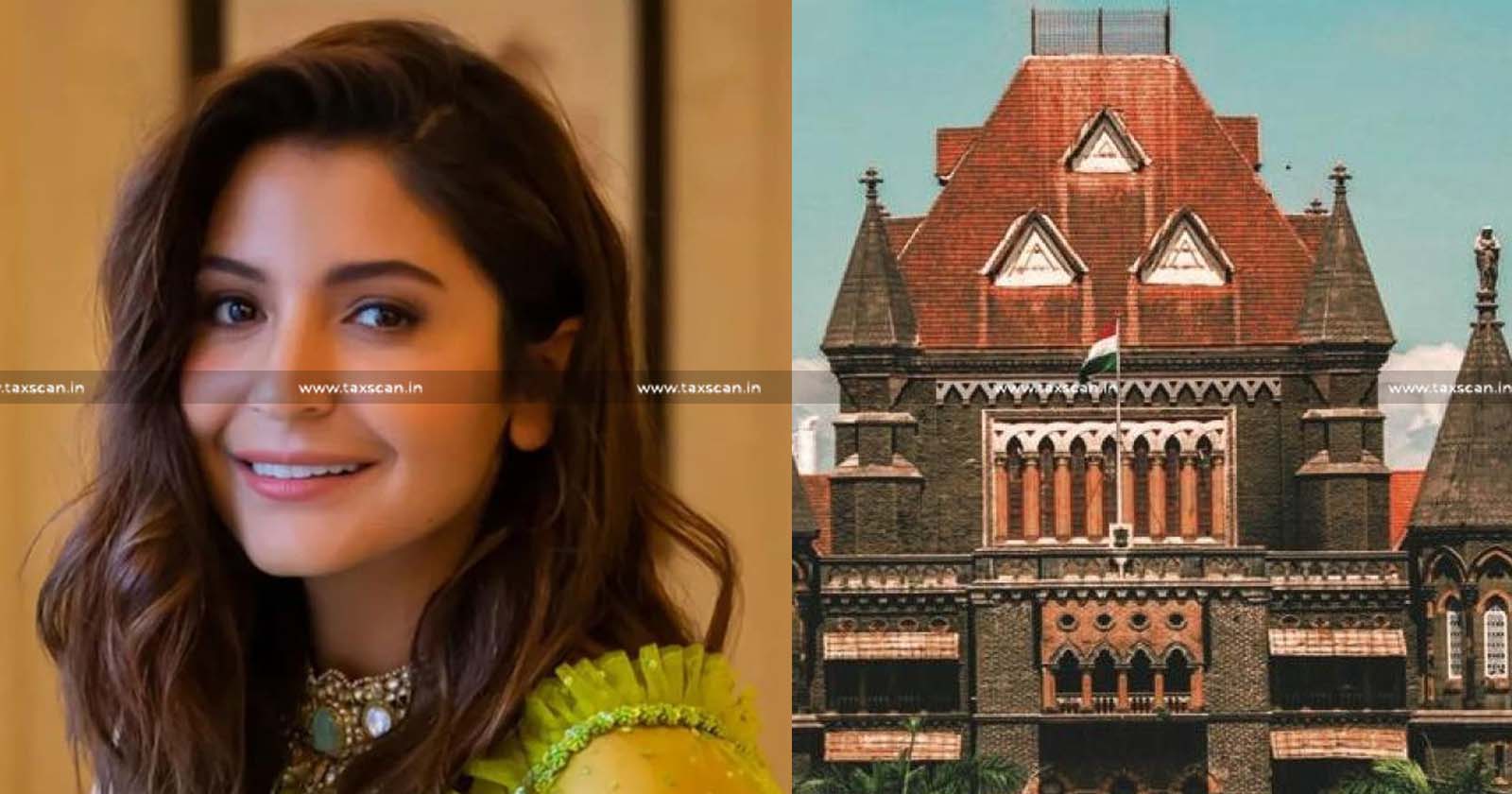Actor Anushka Sharma's Sales Tax Demand Issue to be addressed at Appellate Authority: Adjudication on Facts required, says Bombay HC

The Bombay High Court on Thursday disposed of four tax petitions filed by actor Anushka Sharma and asked her to approach the appellate authority under the Maharashtra Value Added Tax Act for addressing the issue of demand of Sales Tax by the department.
The Division Bench of Justice Nitin Jamdar and Justice Abhay Ahuja said that there were disputed questions of fact which would require an inquiry. Therefore it was observed that Actor Anushka Sharma should approach the Joint Commissioner Appeals of the Sales Tax Department, the appellate authority for judicial adjudication of the matter.
Anushka Sharma, the actor, is the first owner of copyrights created in her artistic performances and is to be held liable to pay sales tax for brand endorsements and for comparing award functions, the Sales Tax Department stated in the affidavit submitted to the Bombay High Court.
Earlier, the Bombay High Court had reprimanded the actor for filing a Writ Petition in relation to the additions by the Assessing Officer in terms of copyrights allegedly acquired by endorsing products and anchoring, starting the legal battle on the wrong foot.
The petitioner submitted that she will avail the alternate remedy provided under the statute, after arguments. Thereby keeping the contentions open, the Bench directed an Appeal to be filed within two weeks, the bench ordered adding that the department may condone the delay in filing the appeal.
Sharma had filed the petition challenging orders of the deputy commissioner of sales tax, Mazgaon, with respect to dues from 2012-2016 for assessment under The Maharashtra Value Added Tax Act.
The counsel for the actor-assessee contended that the assessing officer wrongly held that by endorsing products and anchoring she acquired copyrights which are tangible goods, that are sold and transferred. She was liable to pay only 5% tax, she said. She contended that the copyright always remains with the producer or the respective artist as the case may be.
In her plea, she claimed to have acted in several films as well as award functions according to the tri-party agreement with Yash Raj Films Pvt Ltd. She also submitted that the assessing officer had wrongly held that by endorsing products and anchoring, she acquired copyrights that are tangible goods, which are sold and transferred. She contended that the copyright always remains with the producer or the respective artist as the case may be.
The demand inclusive of interest was Rs. Rs. 1.2 crore and 12.3 Crore for 2012-13 and for 2013-14 it was nearly Rs. 17 crore. Sharma said there was no way to appeal against this unless 10% of the tax was paid.
The department opposed the pleas on the ground of maintainability as she had an alternate remedy under Section 26 of the Maharashtra Value Added Tax Act.
The department claimed that unlike an employee working for a company, Sharma had earned monies through tri-party contracts with Yash Raj Films as her agent, therefore, her petitions in which she assailed tax notices from 2012- 2016 should be dismissed.
Based on Sharma's Talent Management agreement with Yash Raj, the department concluded that she is a performer under the Copyrights Act. Through Sharma’s YRF Talent Management agreement, she entered into tripartite agreements with various companies and received consideration for her artistic performance from the client company, which is then used by the client company for commercial purposes like advertisement, entertainment.
At this time, the Copyright involved in her performance is also transferred to the client company, which is covered under the definition of Sale 2(24) of the MVAT Act, as per the affidavit by the department.
The department also clarified that Sharma wasn't being taxed for her film performances under the MVAT Act as those rights belong to the film producer.
"She is providing her services and earning income through contract for services and not through contract of services (Not employed with anybody). Therefore, under Section 17 of the Copyright Act 1957 she is first owner of Copyrights created in her artistic performances," the affidavit stated.
Nevertheless, the Bombay High Court disposed of the petition granting the petitioner the liberty to file an appeal against the impugned order of sales tax demand.
Support our journalism by subscribing to Taxscan premium. Follow us on Telegram for quick updates


